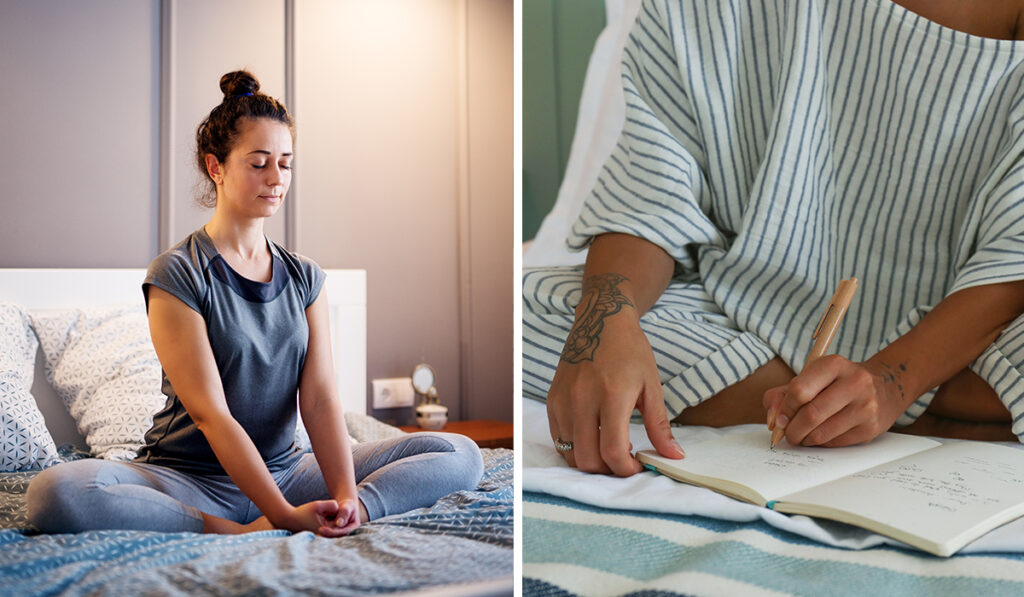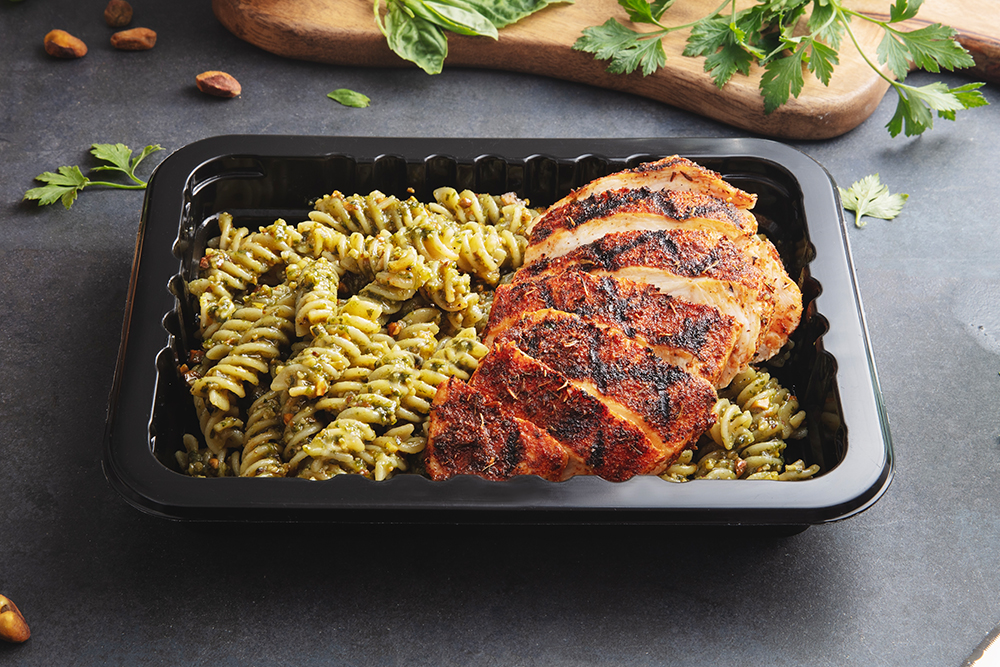Did you know that over 30% of Americans have clinical insomnia? Additionally, 8 out of 10 people struggle to get enough quality sleep. “I only need 5 hours of sleep” is a badge far too many people wear proudly. Sleep is not just a luxury but a vital part of our overall health and homeostasis. When our circadian rhythm is disrupted, glands and cells find it difficult to produce the hormones and neurotransmitters needed for drive, focus, metabolism, and muscle tissue building.
Andrew Huberman, Mathew Walker, and James Nestor, who are renowned experts in the field, continue to study and shed light on the crucial role that nutrition and lifestyle modifications can have on sleep and stress management.
According to Andrew Huberman, a neuroscientist and professor at Stanford University, “Sleep has a powerful influence on our brain and body function. During sleep, our brain consolidates memories, repairs tissues, and releases important hormones that regulate our mood, energy, and overall well-being.”

Ten Tips to Improve Sleep & Stress
Let’s take a look at ten tips to achieve more restorative sleep and greater stress resistance:
- EAT MORE PROTEIN DURING THE DAY: Protein is not only essential for muscle growth and repair, but it also plays a crucial role in promoting better sleep. As Huberman explains, “Protein-rich meals during the day can help stabilize blood sugar levels, preventing dips and spikes that can interfere with sleep quality.” The amino acids from protein also help build neurotransmitters that relax the central nervous system when needed. A good amount to shoot for is 25g-35g of protein per meal from quality sources.
- CONSIDER ADDING CARBS TO YOUR LAST MEAL: Andrew Huberman suggests “Including carbohydrates in your last meal can enhance sleep quality by promoting the release of serotonin, a neurotransmitter that helps regulate sleep-wake cycles.” Opt for sources that are easier to digest, such as sweet potatoes, Jasmin rice, Yukon gold potatoes, and fruits such as berries, pineapple, and kiwi. We don’t want a significant blood sugar spike, so 30g-40g of these carbs may provide a good tolerance test.

- INCORPORATE MAGNESIUM-RICH FOODS: According to sleep expert Mathew Walker, author of “Why We Sleep,” “Magnesium is a natural relaxant that helps activate the parasympathetic nervous system, promoting a state of calmness and inducing sleep.” Foods like leafy greens, nuts, seeds, and dairy are excellent sources of magnesium.
- EMBRACE FOODS RICH IN TAURINE: Taurine is an amino acid that promotes relaxation and improves sleep quality. It facilitates the production of the neurotransmitter GABA, calming the nervous system and helping you unwind. Taurine can also positively affect hormonal balance for both men and women. Seafood, poultry, and dairy products are good sources of taurine.
- SIP ON CHAMOMILE TEA: Chamomile tea contains compounds that bind to specific receptors in the brain, promoting relaxation and aiding in sleep. Enjoying a warm cup of chamomile tea before bed can help you clear your mind and prepare for a restful night’s Sleep.
- OPT FOR FOODS HIGH IN GLYCINE: According to Huberman, “Glycine, found in foods like bone broth, gelatin, chicken, and turkey, acts as a neurotransmitter that can improve sleep quality and achieve a deeper, more restorative sleep.” The body also uses glycine for detoxification purposes.

- TURN OFF BLUE LIGHT: Walker warns, “Exposure to blue light from electronic devices can disrupt your circadian rhythm and suppress melatonin production.” To promote better sleep, avoid using electronic devices such as smartphones or laptopsat least an hour before bed.
- BECOME A NOSE BREATHER: James Nestor, author of BREATH, emphasizes the importance of nasal breathing, stating, “Nasal breathing can boost nitric oxide by 6x, which is one of the reasons we can absorb 18% more oxygen just by breathing through our nose.” Slow, deep breathing through the nose relaxes the body and calms the mind in a very short amount of time.
- REDUCE ALCOHOL CONSUMPTION: Walker advises, “Alcohol before bed may help you feel relaxed, but it actually robs you of REM sleep — the deep slumber your brain requires for optimal restoration.” Alcohol consumption before bed can also impair your breathing at night, which can wake you multiple times even if you don’t remember doing so.
- FILL IN A GRATITUDE JOURNAL: Taking a few moments before bed to reflect on the positive aspects of your day can help shift your focus from stress to gratitude. Writing in a gratitude journal allows you to acknowledge the good things in your life, promoting a more positive mindset and setting the stage for a peaceful night’s sleep.
Incorporating these tips into your routine, as recommended by experts like Andrew Huberman, Mathew Walker and James Nestor, can help improve your sleep quality and enhance your ability to cope with stress. Providing your body with the proper nutrients and feeding times as well as adopting new evening habits can pave the way for a more restful and rejuvenating sleep.

Find the nutrition you need on this week’s menu.
SHOP NOW >






